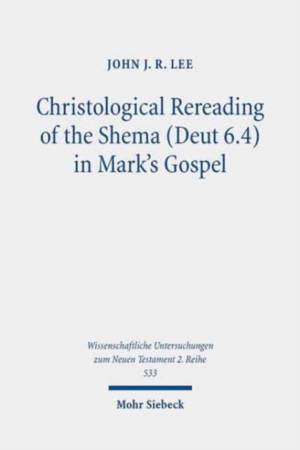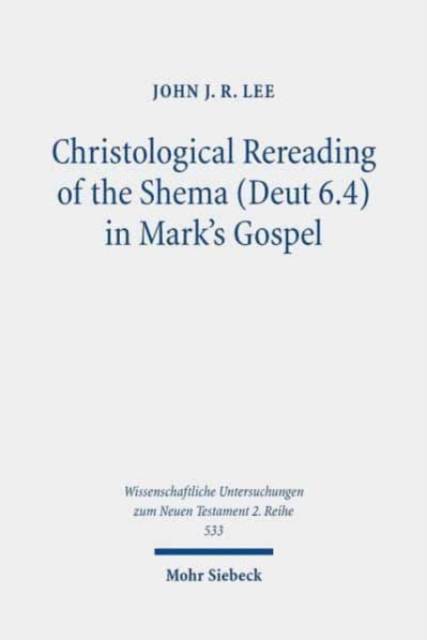
- Afhalen na 1 uur in een winkel met voorraad
- Gratis thuislevering in België vanaf € 30
- Ruim aanbod met 7 miljoen producten
- Afhalen na 1 uur in een winkel met voorraad
- Gratis thuislevering in België vanaf € 30
- Ruim aanbod met 7 miljoen producten
Zoeken
Christological Rereading of the Shema (Deut 6.4) in Mark's Gospel
John J R Lee
€ 104,45
+ 208 punten
Omschrijving
In Mark's Gospel, the Shema language of Deut 6.4 is not merely reiterated in a traditional sense but reinterpreted in a striking way that links Jesus directly and inseparably with Israel's unique God. Such an innovative rereading of the Shema must be understood in light of (a) various elements involved in and surrounding each of the three monotheistic references (Mark 2.7; 10.18; 12.29) relating to their respective literary contexts, and (b) Mark's nuanced, complex, and even paradoxical portrait of Jesus' relationship to God throughout his gospel. John J.R. Lee shows that Mark's use of the one-God language implies that his Jesus is not merely one who, as a Shema-observant Jew, speaks on behalf of God but also one whose status and significance fundamentally correspond to those of Israel's unique deity.
Specificaties
Betrokkenen
- Auteur(s):
- Uitgeverij:
Inhoud
- Aantal bladzijden:
- 334
- Taal:
- Engels
- Reeks:
Eigenschappen
- Productcode (EAN):
- 9783161528071
- Verschijningsdatum:
- 1/11/2020
- Uitvoering:
- Paperback
- Formaat:
- Trade paperback (VS)
- Afmetingen:
- 231 mm x 155 mm
- Gewicht:
- 507 g

Alleen bij Standaard Boekhandel
+ 208 punten op je klantenkaart van Standaard Boekhandel
Beoordelingen
We publiceren alleen reviews die voldoen aan de voorwaarden voor reviews. Bekijk onze voorwaarden voor reviews.








